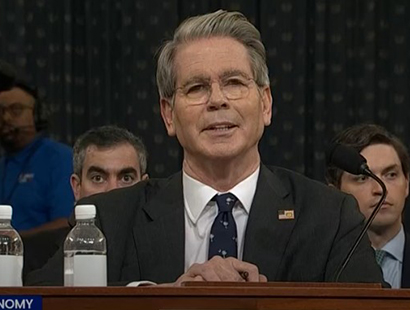Congress to Drop Provision 899 From Budget Bill
The retaliatory tax would have penalized foreign investors for "unfair" taxes in their home countries and put a damper on a critical source of CRE funding.

The One Big Beautiful Bill budget proposal is now missing a provision that would have been pretty undesirable for commercial real estate.
Treasury Secretary Scott Bessent announced on X on Thursday that he has asked Republican lawmakers to eliminate Provision 899, which would impose annual tax increases of 5 percent on direct investment in the U.S. by foreign investors. Its removal would add “greater certainty and stability for the global economy,” Bessent wrote.
The “revenge tax,” as it has been described, was in response to tax policies in other countries that have been deemed unfair to the U.S. The tax would have been capped at 20 percent and would have been called off if a foreign country removed the unfair tax.
READ ALSO: Foreign Investment Down, but Not Out
Industry groups have been lobbying hard against the provision because of the negative effect it would have on foreign investment in U.S. real estate. On June 12, the Real Estate Roundtable and 11 other industry groups sent a letter to Congress asking that Provision 899 be revised to exempt non-controlling foreign debt and equity interests in U.S. real estate and to exclude existing transactions.
Provision 899 would have had a direct impact on the cost of capital for U.S. investors that use foreign capital to fund their investments, and it would have had a “chilling effect” on foreign investment generally, according to David McCarthy, managing director & head of legislative affairs, for CREFC, which participated in RER’s letter.
“I’m glad the administration was able to negotiate an agreement,” McCarthy said. “I’m glad Congress stepped back on this.”
Debt securities were the only form of investment that would not have been covered by the provision.
Reaching back to address current circumstances
Congress’ ability to impose Provision 899 comes from Section 891 of the U.S. tax code. Enacted in 1934, Section 981 allows the U.S. to double tax foreign citizens and corporations when taxes in foreign countries are deemed “discriminatory or extraterritorial.” It has not been formally used to date but “international parity” is a policy priority for President Trump, McCarthy noted.
“People learned the lesson: You take the administration at its word,” he said. “They are willing to take this to the mat on international issues.”







You must be logged in to post a comment.